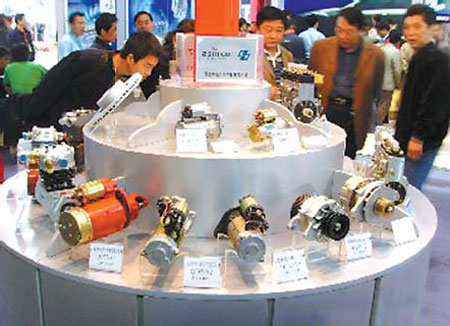


It is not all about eating. For Jack Perkowski, doing business in China is not as simple as swallowing foods that he had never heard of before or washing them down with more baijiu than his stomach is comfortable with.
As a manager of 18 factories in over eight provinces in China, and an employer of over 12,000 workers throughout the country, and as an American who speaks little Chinese, there are much bigger challenges for him than exotic foods and powerful alcohol.

One of the bigger challenges is how to manage joint ventures located in places where, as a Chinese saying goes and Perkowski quotes, "the mountains are high and the emperor is far away."
While he admits, "that changing management at virtually all of our operating units was an extremely difficult program to implement", he concludes that there are three hurdles.
First is finding "new China managers", which by his definition, refers to people with open-mindedness, management education, and prior experience with a multinational.
Second is breaking a vested interested in joint ventures' and third is overcoming unfavorable contract provisions.
Perkowski explains how his company overcame these three hurdles by telling stories on guerilla warfare in Anhui, a peaceful transition in Langfang, and an election in Hunan, or in his words, "Mao's backyard".

The Anhui story is one of the toughest challenges that Perkowski met in his joint ventures in China. The joint venture between Asimco and Fang Yuan, a successful Chinese entrepreneur in the province, was the one of the first joint ventures that Perkowski set up in China. The company making molded rubber products was profitable since its beginning, but Perkowski would find out later that his Chinese partner was not playing the game according to the rules.
He was told that Fang was setting up a competing company despite the fact that the two sides had signed a non-compete agreement only several months before. And he realizes that when Fang sold the 60 percent of his company, his real intention was to get the capital, instead of building a big business with the partnership. And in 1998, when Asimco purchased another 20 percent of Fang's company, Perkowski was told that Fang was building a new factory on the other side of the town.
He says that allowing this to go on would have undermined their entire effort in China, and that he decided to remove Fang from the joint venture.

After confronting Fang at a meeting and pushing him to resign, Perkowski was relieved at first, but on the next morning, in a trip to the joint venture factory, he found that there were no employees and no electricity.
Perkowski searched for help from the local government, which decided to offer a hand and the factory was back to normal shortly.
Perkowski learned from the "most tragic episode" of all his experiences in China the importance of working hard with local government, as well as how to operate the Chinese way by "leveraging relationships and playing to your strengths".
(China Daily 08/04/2008 page12)













